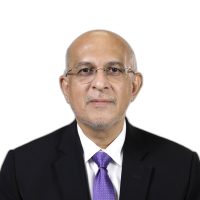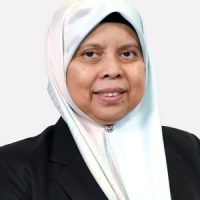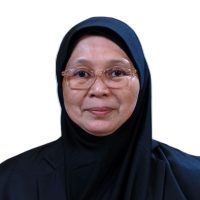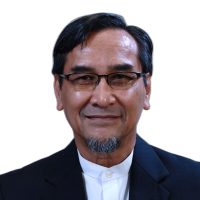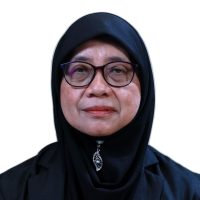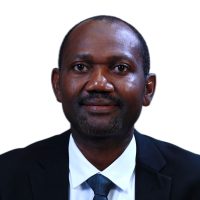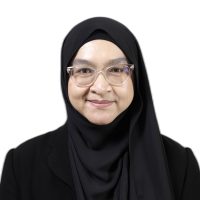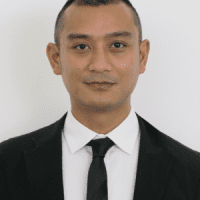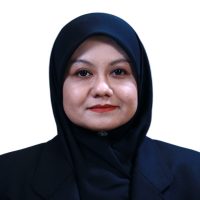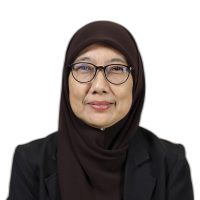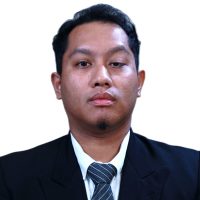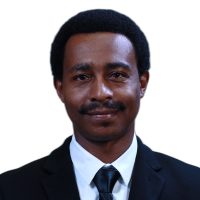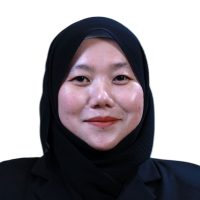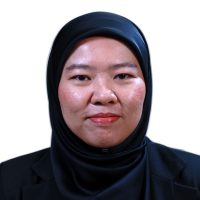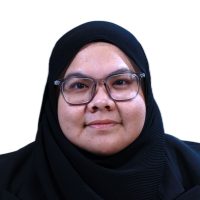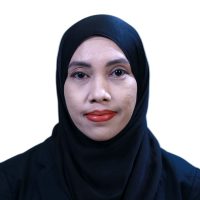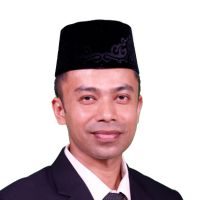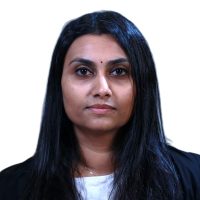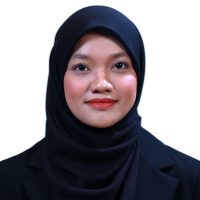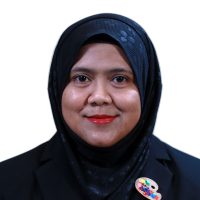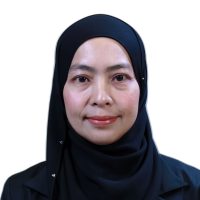
About
The School of Education and Human Sciences (SEHS) aims to equip students with necessary knowledge and skills required in the industry to work within various sectors, including education, social care, health, media and communication, and public policy. We provide a conducive ambience with state-of-the-art facilities and infrastructures for self-learning and discovery of knowledge and skills.
Our programmes are technologically-driven, global, and they encapsulate the communication revolution of the 21st Century – powered by the advent of Internet 4.0. The School provides an interdisciplinary and multimedia approaches for students by examining the relationship between theory and practice. The programmes focus on developing students’ ability to demonstrate professionalism and technology-savvy. Our postgraduates and undergraduates are encouraged to contribute and indulge in the University’s niche research areas.
Potential candidate can get ahead to pursue their dreams with SEHS, AIU!
Our dedicated and well-equipped academic staff are devoted to produce holistic graduates from diverse ethnicities and backgrounds to become competent, innovative, creative, and meet the demands of the corporate world competitiveness.
Vision
To be a centre of excellence in learning social business through an innovative and creative curriculum.
Mission
- Providing graduates with quality education through innovative curriculum and research experiences in order to meet the evolving needs of industry, government and society at large.
- Disseminating knowledge through teaching, academic, publication, and presentation.
- Contributing to the academic advancement of business management, development studies and social business.
- Creating knowledge through academic research and smart-partnership of research collaboration.
Programmes Offered
| Programme | Bachelor of Elementary Education (Honours) R/0113/6/0006 (9/29) MQA/FA 11500 |
| Total Credits to Graduate | 130 credit hours |
| Duration of Study | 3 years (9 semesters) |
| Programme Educational Objectives (PEO) |
|
| Programme Learning Objectives (PLO) | PLO1 Capable of using basic knowledge in elementary education; PLO2 Able to solve problems, design and conduct research, and analyze and interpret critical research phenomena in the field of elementary education PLO3 Possess profound technical, practical and professional skills in elementary education; PLO4 Demonstrate interpersonal skills in disseminating information and formulating administration strategies. PLO5 Able to communicate effectively as individuals and in groups; PLO6 Possess solid foundation for managing information and has an expectation of the need to undergo continuous learning through the use of up-to-date technology; PLO7 Manage data using appropriate mathematical and statistical methods. PLO8 Capable of being a leader or a manager or an effective group member. PLO9 Demonstrate good personal skills to establish credibility as a responsible individual and member in a society. PLO10 Able to manage and possess entrepreneurship qualities; PLO11 Demonstrate ethics as a professional elementary education practitioner in social, cultural, moral and / or religious values; |
| Programme | Bachelor in Early Childhood Education (Honours) R/0112/6/0029 (9/29) MQA/FA 11502 |
| Total Credits to Graduate | 120 credit hours |
| Duration of Study | 3 years (9 semesters) |
| Programme Educational Objectives (PEO) | 1 . Graduates will foster skills of independent learning, teamwork, problem-solving, critical reflection and communication relevant to education and transferable to future vocational, academic and personal needs. 2. Graduates will apply the values of excellence, integrity, quality, resourcefulness and compassion through leadership, volunteerism, civic responsibility, mutual-cooperation, respect of diversity and success for individuals and societies. 3. Graduates will demonstrate organisational research, technical and creative skills and the professional context of education. |
| Programme Learning Objectives (PLO) | PLO1 Capable of using basic knowledge in early childhood education; PLO2 Able to solve problems, design and conduct research, analyze and interpret critical research phenomena in the field of early childhood education PLO3 Possess profound technical, practical and professional skills in early childhood education; PLO4 Demonstrate interpersonal skills in disseminating information and formulating administration strategies. PLO5 Able to communicate effectively as individuals and in groups; PLO6 Possess solid foundation for managing information and has an expectation of the need to undergo continuous learning through the use of up-to-date technology in early childhood education; PLO7 Possess numeracy concepts and skills, and manage data using appropriate mathematical and statistical methods in early childhood education PLO8 Capable of being an educator and leader or an effective group member of Parents-Teacher Association and the community PLO9 Demonstrate good personal skills to establish credibility as a responsible individual and member in a society. PLO10 Possess entrepreneurship qualities in the early childhood settings PLO11 Demonstrate ethics as a professional early childhood education practitioner in social, cultural, moral and / or religious values. |
| Programme | Bachelor of Media and Communication (Honours) R/0323/6/0051 (2/30) MQA/FA 11501 |
| Total Credits to Graduate | 126 credit hours |
| Duration of Study | 3 years (9 semesters) |
| Programme Educational Objectives (PEO) |
|
| Programme Learning Objectives (PLO) |
|
Programme | Master of Education N/140/7/0028 (6/26) MQA/PA 14318 |
Total Credits to Graduate | N/A |
Duration of Study | Master by Research (Full Time) Minimum of years: 2 years Maximum of years: 4 years |
Master by Research (Part Time) Minimum of years: 3 years Maximum of years: 6 years | |
Programme Educational Objectives (PEO) | The Master of Education (M.Ed.) programme has three (3) major objectives. Upon completion of the program, graduates should be able to: PEO 1: To produce professional and ethical educators and graduate scholar-teachers who are knowledgeable in decision making of relevant theories and practices, demonstrate capability of producing new and creative knowledge in order to be effective and aspiring professionals; PEO 2: To demonstrate skills in analysing and synthesizing their knowledge and professional practice in order to solve problems in innova-tive research and projects for the benefit of profession and society; and PEO 3: To develop graduate-scholar teachers’ generic competencies relevant to the needs of the contemporary global development of education, and their commitment to Islamic morality/akhlak, ethical and spiritual val-ues to initiate, lead as well as sustain educational growth in diverse spe-cializations. |
Programme Learning Objectives (PLO) | To achieve these objectives, the programme outlines the following pro-gramme learning outcomes (PLOs). At the end of this programme, the stu-dent should be able to: PLO1: Describes a comprehensive, theoretical and technical knowledge in dynamic education area. PLO2: Utilize relevant education related literature to create a new idea, so-lution and strategies or new practices. PLO3: Apply a range of essential methods and research methodologies to solving a broad range of education issues. PLO4: Work together with different people in diverse learning and working communities as well as other groups locally and internationally. PLO5: Convey ideas both in written or oral forms using appropriate and different forms of presentation, confidently, accurately and coherently in presenting education ideas, in a well-structured manner to a diversity of audiences. PLO6: Use a broad range of information, media and technology applica-tions to support academic, research and career development. PLO7: Use qualitative and / or quantitative research tools to analyse data. PLO8: Work autonomously and show professionalism in conducting research with minimal supervision. PLO9: Engage effectively in self-directed lifelong learning and professional pathways. PLO10: Demonstrate entrepreneurial competency in managing research output to solve educational and societal issues. PLO11: Display adherence, ability to identify ethical issues, make decision ethically, act professionally within the varied social and professional envi-ronment while conducting research. |
Programme | Doctor of Philosophy N/140/8/0030 (7/28) MQA/PA 14319 |
Total Credits to Graduate | N/A |
Duration of Study | Doctor of Philosophy (Full Time) Minimum of years: 3 years Maximum of years: 6 years |
Doctor of Philosophy (Part Time) Minimum of years: 4 years Maximum of years: 8 years | |
Programme Educational Objectives (PEO) | The Doctor of Philosophy (Ph.D.) programme has three (3) major objectives. Upon completion of the program, graduates should be able to: PEO 1: Conduct research to understand and solve education related is-sues in a critical, creative, innovative, and ethical manner; PEO 2: To lead innovation in educational policies and practices that con-tribute to the global advancement; PEO 3: Be dynamic and proactive on the current development of national and international education issues while maintaining a genuine self-identity. |
Programme Learning Objectives (PLO) | To achieve these objectives, the programme outlines the following programme learning outcomes (PLOs). At the end of this programme, the student should be able to: PLO1: Synthesize knowledge and contribute to original research that extends the boundaries of knowledge in education related fields; PLO2: Construct education issues critically using scientific and innovative problem-solving skills; PLO3: Adapt practical skills by focusing on innovative ideas in education related fields and provide solutions to resolve new highly complex and emerg-ing problems; PLO4: Disseminate ideas, and provide solutions for education problems and issues to peers, scholarly community and society at large; PLO5: Convey ideas both in written or oral forms using appropriate and dif-ferent forms of presentation, confidently, accurately and coherently in creat-ing and presenting education ideas, in a well-structured manner to a diversi-ty of audiences; PLO6: Use a broad range of information, media and technology applications to support academic, research and career development; PLO7: Design systematic research methodology and critically evaluate find-ings based on empirical evidence; PLO8: Demonstrate quality leadership and professionalism through effec-tive communication and collaboration among researchers and stakeholders; PLO9: Integrate information in self-directed lifelong learning and professional pathways. PLO10: Demonstrate entrepreneurial competency in managing research output to solve global issues PLO11: Display adherence, ability to identify ethical issues, make decision ethically, act professionally within the varied social and professional envi-ronment while conducting research. |
Members Of Staff
Professor Dr. Abdul Malek Bin Abdul Karim
Professor Dr. Munirah Binti Ghazali
Associate Professor Dr. Tengku Shahrom Bin Tengku Shahdan
Associate Professor Dr. Kalthom Binti Husain
Associate Professor Dr. Bakare Kazeem Kayode
Adhara Binti Ahmad
Ildefonso Halipa Jr.
Dr. Sitinurbayu Binti Mohd Yusoff
Dr. Amani Binti Abdullah Mubarak
Mohamad Nor Hisyam Bin Musa
Head of Programme (Bachelor of Media and Communication)
Nidhoil Mohamed Ibrahim
Alia Hanim Binti Zainal Abidin
Nurul Huda Binti Hassan Bakri
Samihah Binti Mahamud
Head of Programme (Bachelor in Early Childhood Education))

